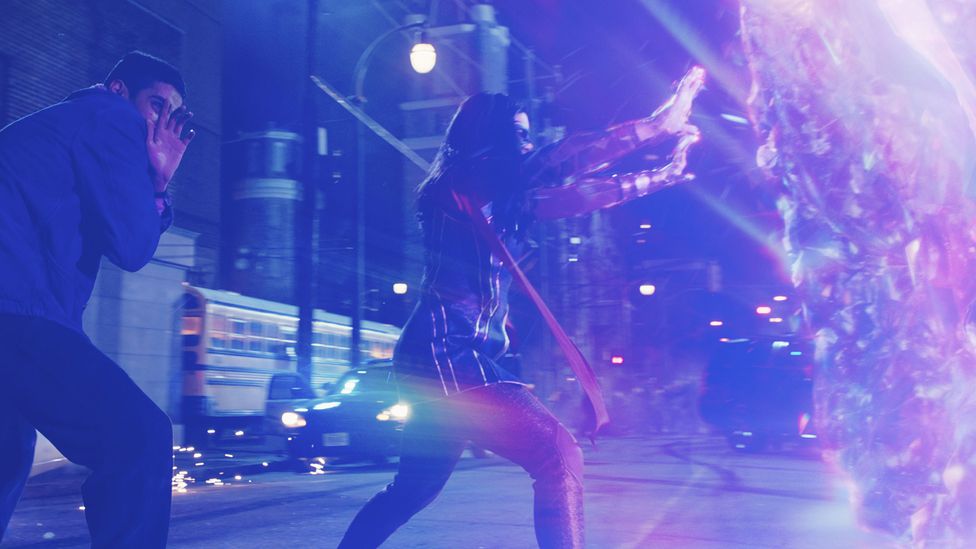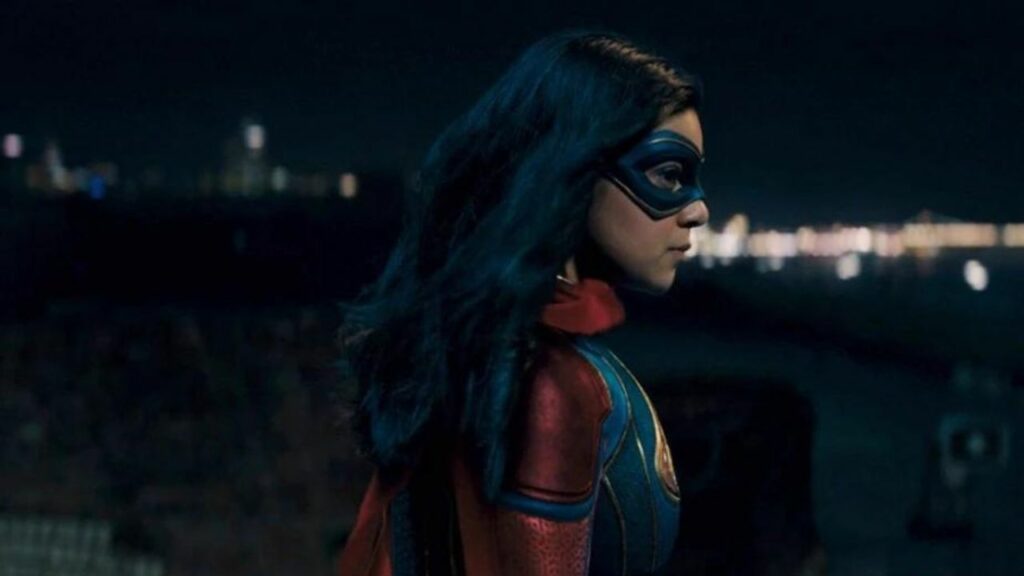Watching Ms. Marvel is like “looking into a mirror” for Desi, Muslim Americans
July 28, 2022
Cover photo credit: “Ms. Marvel” (Disney+)
By: Bareerah Zafar
Disney+’s newest live-action television series, Ms. Marvel, is a breath of fresh air when it comes to Muslim and Pakistani representation in Western media.
Though it was review bombed on IMDb, it is the highest-rated Marvel project on Rotten Tomatoes, surpassing Endgame and Black Panther. It also has the highest BIPOC viewership of any show on Disney+.
Ms. Marvel, based on a comic book series of the same name, follows 16-year-old Kamala Khan, a Pakistani American Muslim girl from Jersey City. She unlocks powers that reveal secrets about her family’s past and attract cosmic beings from another dimension.

At its core is a love letter to the Muslim and Pakistani people who too often find themselves stuck with the same, tired, racist narrative.
Decentralizing whiteness
Western media has a pattern of othering communities that are not white, from suggesting that people from the Middle East are “barbaric” (Aladdin), to portraying Muslims as terrorists (Iron Man), to pushing the narrative that hijab oppresses Muslim women (Elite).
Ms. Marvel overcomes these stereotypes and presents a new narrative.
Ms. Marvel is the first Pakistani and Muslim superhero to grace the Marvel Cinematic Universe (MCU). The show places a heavy emphasis on her identity and seamlessly weaves it into every aspect of her story without taking up screen time to explain every inside joke, symbol, song or tradition.
The show features conversations about Bollywood movies, casual Urdu and Arabic phrases, an Eid-al-Adha celebration and a traditional Desi Muslim wedding. It even uses the misrepresented term “Allahu Akbar” (meaning “God is greatest”) in its correct context.
In an interview with Q on CBC, actress Iman Vellani (Kamala Khan) spoke about the importance of normalizing the existence of Muslims in Western media.
The cast and crew also consist mainly of BIPOC talent.
A story nearly every young South Asian in the diaspora can relate to
Many Desi Americans said watching Ms. Marvel was like looking into a mirror.
Many of us can relate to the brown family dynamics: the strict parents, the gendered double standards, the fear of disappointing our elders by pursuing our passions. We can also relate to praying in a mosque alongside our family and friends, celebrating Eid, learning dances for weddings and dealing with gossiping aunties.
Ms. Marvel portrays all aspects of brown and Muslim communities without stereotyping or tokenizing. It is clear that the creators put a lot of thought and care into Kamala’s story, creating a unique addition to the MCU and a comfort show for American Desis.

Educating on our forgotten history
One of the many aspects of Ms. Marvel that sets it apart from other forms of South Asian representation is its incorporation of our history.
Episode 5, titled “Time and Again”, takes us back to the late 1940s when British colonizers were taking their leave and India was split along a religious divide. We meet Kamala’s great grandparents, played by beloved Pakistani actors Mehwish Hayat and Fawad Khan, as they navigate tensions during the Partition.
As Kamala’s brother, Amir, said, “Every Pakistani family has a Partition story. And none of them are good.”
In the show, you’re at the train station with Kamala and her family, watching a sea of bodies as they desperately attempt to board the last train to supposed salvation and escape the trauma left in the wake of British imperialism.
As you watch, there’s a heaviness on your chest, as if you can feel the weight of what your ancestors went through. You experience the fear, the grief, the hurt, and you can’t look away.
This history is rarely touched upon in the American school system so it’s not uncommon for American Desis to often feel a disconnect with their motherland. Ms. Marvel brings us closer to our home and our ancestors in the most beautiful and respectful way.
This show is a refreshing addition to Phase Four and a win for all marginalized communities. It set a precedent for what South Asian and Muslim representation should look like and brought a much-needed change to the MCU.
Bareerah Zafar is a Pakistani American Muslim journalist based in Southern California. She dedicates her career to empowering underrepresented communities through storytelling.